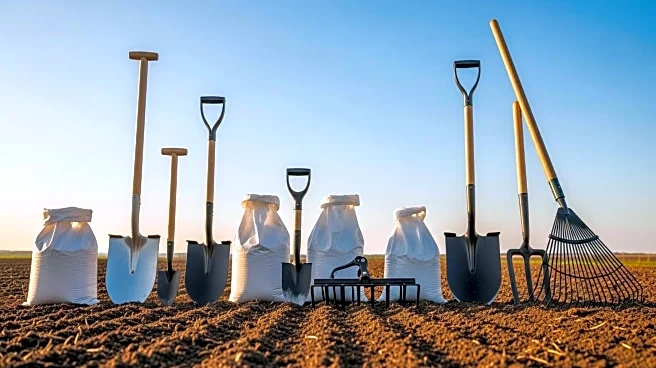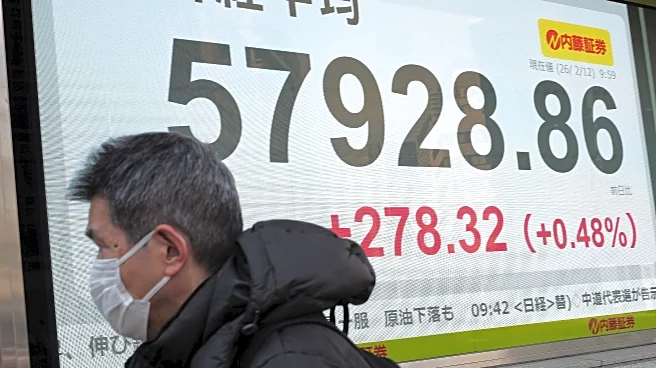What's Happening?
Farmers across various regions are preparing their lands for the new planting season, with eastern regions starting in October and western regions in November. Agriculture remains a vital part of the economy and food security, and the upcoming months are expected to be busy. Wandile Sihlobo, chief economist of Agbiz, discusses the potential impacts of the 2025/26 planting season, including weather forecasts predicting above-normal rainfall due to La Niña, and the expected performance of grains, oilseeds, fruits, and vegetables. He also addresses challenges such as rising input costs and opportunities from new machinery and investments.
Why It's Important?
The planting season is crucial for ensuring food security and economic stability. Favorable weather conditions, such as those predicted with La Niña, can lead to increased crop yields and better grazing conditions for livestock farmers. However, rising input costs pose a significant challenge, potentially affecting profitability and sustainability. The investment in new machinery and technology offers opportunities for increased efficiency and productivity, which are essential for maintaining competitiveness in the agricultural sector.
What's Next?
Farmers and agribusinesses will need to adapt to the changing weather patterns and economic conditions. Monitoring the impact of La Niña and managing input costs will be critical for maximizing yields and profitability. The sector may see increased investment in technology and machinery to enhance productivity and address challenges. Stakeholders will be watching for policy developments and support measures that can aid in navigating these complexities.
Beyond the Headlines
The preparation for the planting season highlights broader issues such as climate change and economic resilience. The reliance on favorable weather conditions underscores the vulnerability of agriculture to environmental factors. The focus on technology and investment reflects a shift towards modernization and sustainability, which could have long-term implications for the industry.












